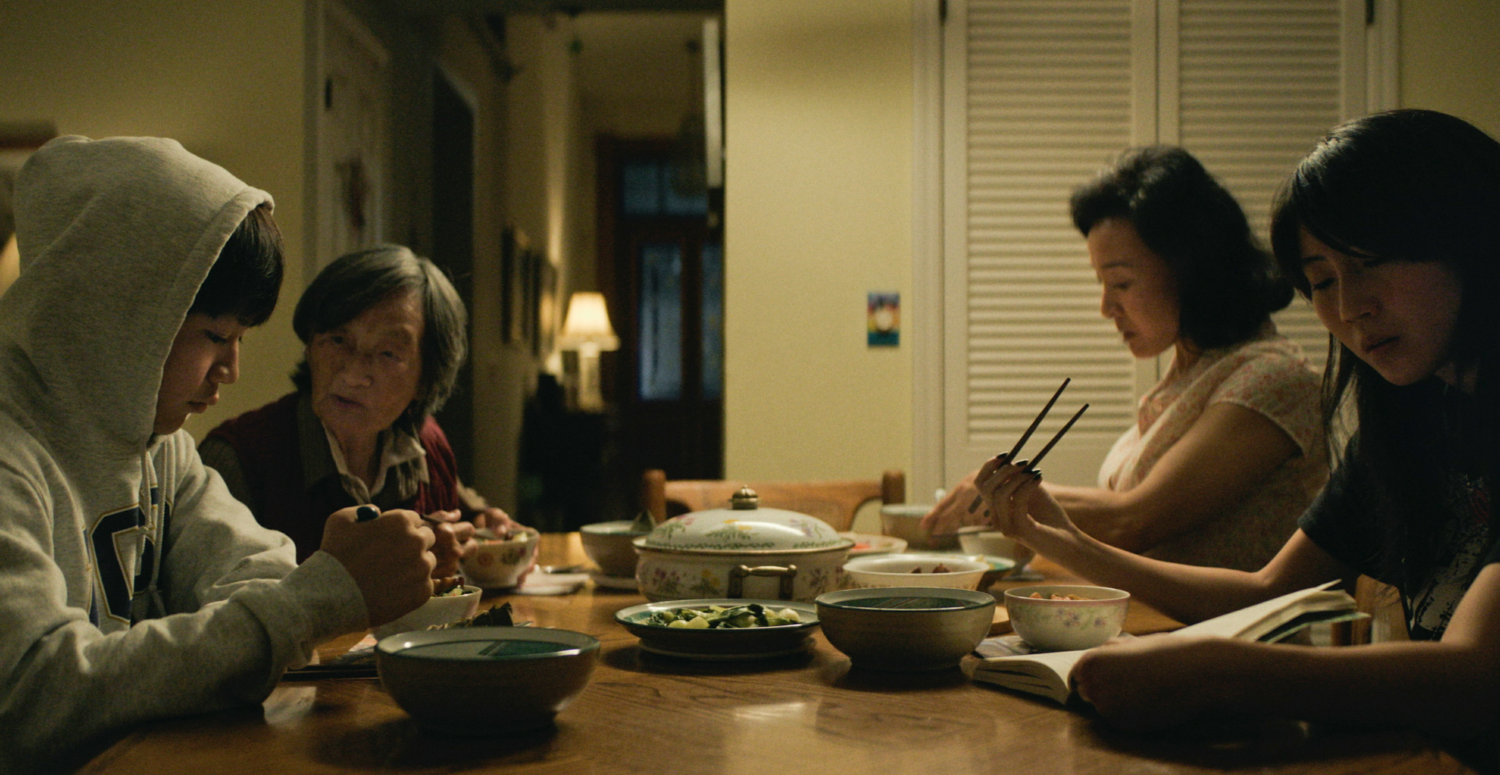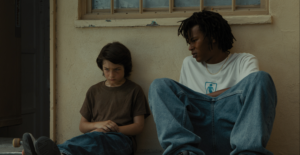Dìdi
Audience Award – Sundance
Best Ensembe – Sundance
Audience Award – Munich
Best First Feature – Spirit
Best First Screenplay – Spirit
2024/2025

FR EN
Chris, dit Dìdi (petit frère) pour sa famille et Wang Wang pour ses potes, a treize ans et s’apprête à rentrer au collège [High School]. C’est l’âge où l’on tient à ses amis plus que tout, c’est l’âge où l’on veut s’imposer par tous les moyens – même complexé par son corps –, c’est l’âge des premiers crushs … en somme c’est un âge compliqué qui va à mille à l’heure. Nous sommes en 2008, à Fremont en Californie qui a la particularité d’être l’une des principales villes d’immigration asiatique aux USA. A la maison, on parle ainsi chinois et on respecte les coutumes ; dehors c’est la liberté de skater sur le bitume et surfer sur la toile dans le but de passer enfin du côté des ados cools et dire adieu à son enfance …
Pour son premier long-métrage, Sean Wang puise dans ses souvenirs pour raconter avec un regard amusé l’adolescence d’un gamin asiatique aux USA, ses disputes permanentes avec sa sœur, avec une mère contrariée, une grand-mère omniprésente, et un père dont l’absence dit beaucoup. Porté par l’excellent et authentique jeu d’Izaac Wang aux côtés notamment de la jeune Shirley Chen, de Joan Chen (Twin Peaks) et d’un casting non-professionnel, « Dìdi » s’impose comme un petit film charmant et nostalgique. C’est un récit initiatique à la fois vraiment drôle et sensible qui équilibre particulièrement bien les moments pleins d’énergie et ceux plus délicats tout en ajoutant une vraie réflexion sur le racisme intériorisé, le rejet identitaire, et la quête absolue de l’amitié.
C’est à la fois un film sur cette difficile période qu’est l’adolescence et sur cette génération 2000s qui explore les relations entre groupes de potes, les premiers désirs, les questions d’assimilation et d’intégration tout en évoquant le multiculturalisme et rendant hommage à la génération Y chez qui le rapport aux autres et à soi fut radicalement changé avec l’arrivée des ordinateurs personnels et des réseaux sociaux. C’est un film qui raconte en cela aussi une époque charnière, celle des chamboulements de l’enfance à travers les écrans via les débuts des réseaux sociaux (les MySpace et Facebook de l’époque), et des ‘profiles’ où la perception d’amitié devient instantanée. Comment se définit-on à cet âge-là ? Comment veut-on être vu ? Comment les autres nous jugent-ils ? Il faut apprendre à s’imposer, faire face aux ‘trahisons’ amicales, aux déceptions amoureuses, et accepter l’amour parfois pesant mais bienveillant de sa famille.
« Dìdi » résonnera donc avec les souvenirs adolescents de toutes les générations tout en racontant une histoire bien spécifique à une époque et une culture. En somme, Sean Wang signe donc un film à la fois personnel, générationnel et universel.
Raphaël Sallenave
Chris, aka Dìdi (little brother) to his family and Wang Wang to his pals, is thirteen and about to start high school. This is the age when you care about your friends more than anything else, the age when you want to make a name for yourself – even if you’re body-complexed – the age of early romantic crush… in short, it’s a complicated, fast-moving age. The year is 2008, in Fremont, California, which is one of the main cities of Asian immigration in the United States. At home, Chinese is spoken and customs respected; outside, it’s freedom to skate on the pavement and surf the web, with the aim of finally becoming a cool teenager and kissing goodbye to his childhood…
For his first feature film, Sean Wang draws on his memories to depict, with a playful eye, the adolescence of an Asian kid in the U.S., his constant arguments with his sister, a frustrated mother, an omnipresent grandmother, and a father whose absence says a lot. Carried by Izaac Wang’s excellent, authentic acting, alongside the young Shirley Chen, Joan Chen (Twin Peaks) and a non-professional young cast, “Dìdi” stands out as a charming, nostalgic film. It’s a genuinely funny and sensitive coming-of-age movie, which balances high-energy and delicate moments particularly well, while adding a real look at internalized racism, identity rejection and the absolute quest for friendship.
This is both a film about the tough period that teenage years represent and about the 2000s generation, exploring relationships between groups of buddies, early desires, issues of assimilation and integration, all the while addressing multiculturalism and celebrating the Y generation, whose concept of self and others changed radically with the arrival of personal computers and social networks. In this way, the film also tells the story of a pivotal era, that of the upheaval of childhood through the screens brought about by the beginnings of social networks (the MySpace and Facebook of the time), and “profiles” where the perception of friendship became instantaneous. How do you define yourself at that age? How do we want to be seen? How do others judge us? It’s a time when you have to learn to assert yourself, face up to friendship “betrayals” and romantic disappointments, and accept the sometimes burdensome but supportive love of your family.
“Dìdi” will therefore speak to the adolescent memories of all generations, while telling a story that is also very specific to an era and a culture. Ultimately, Sean Wang’s film is at once personal, generational and universal.
Raphaël Sallenave

